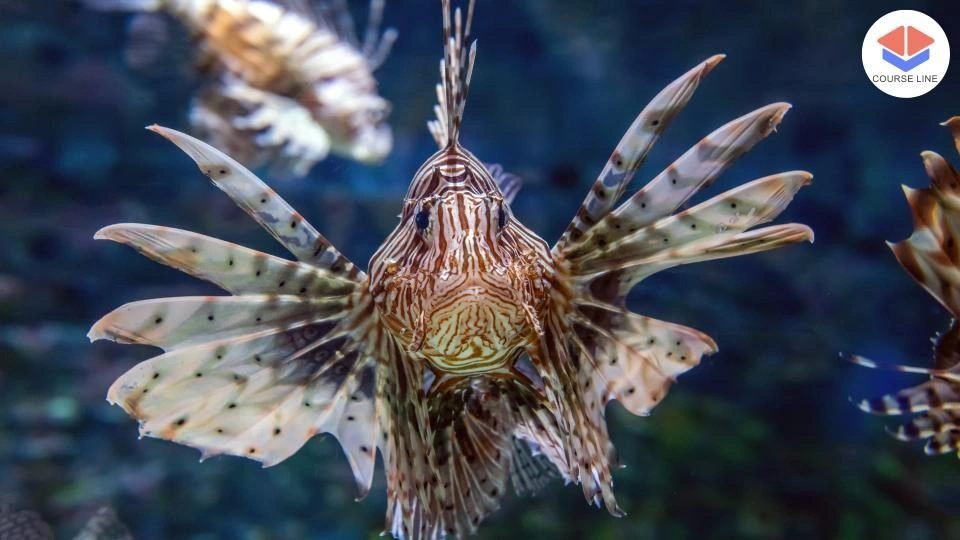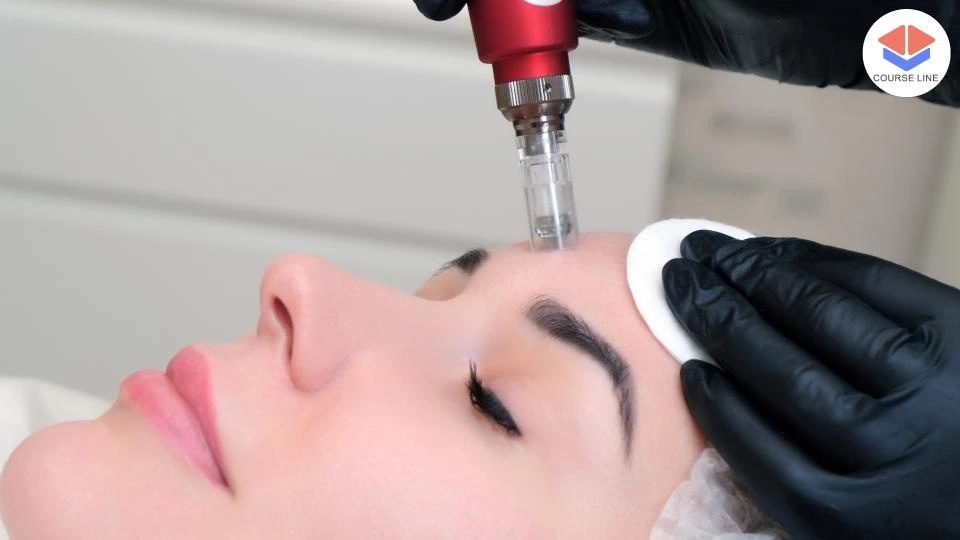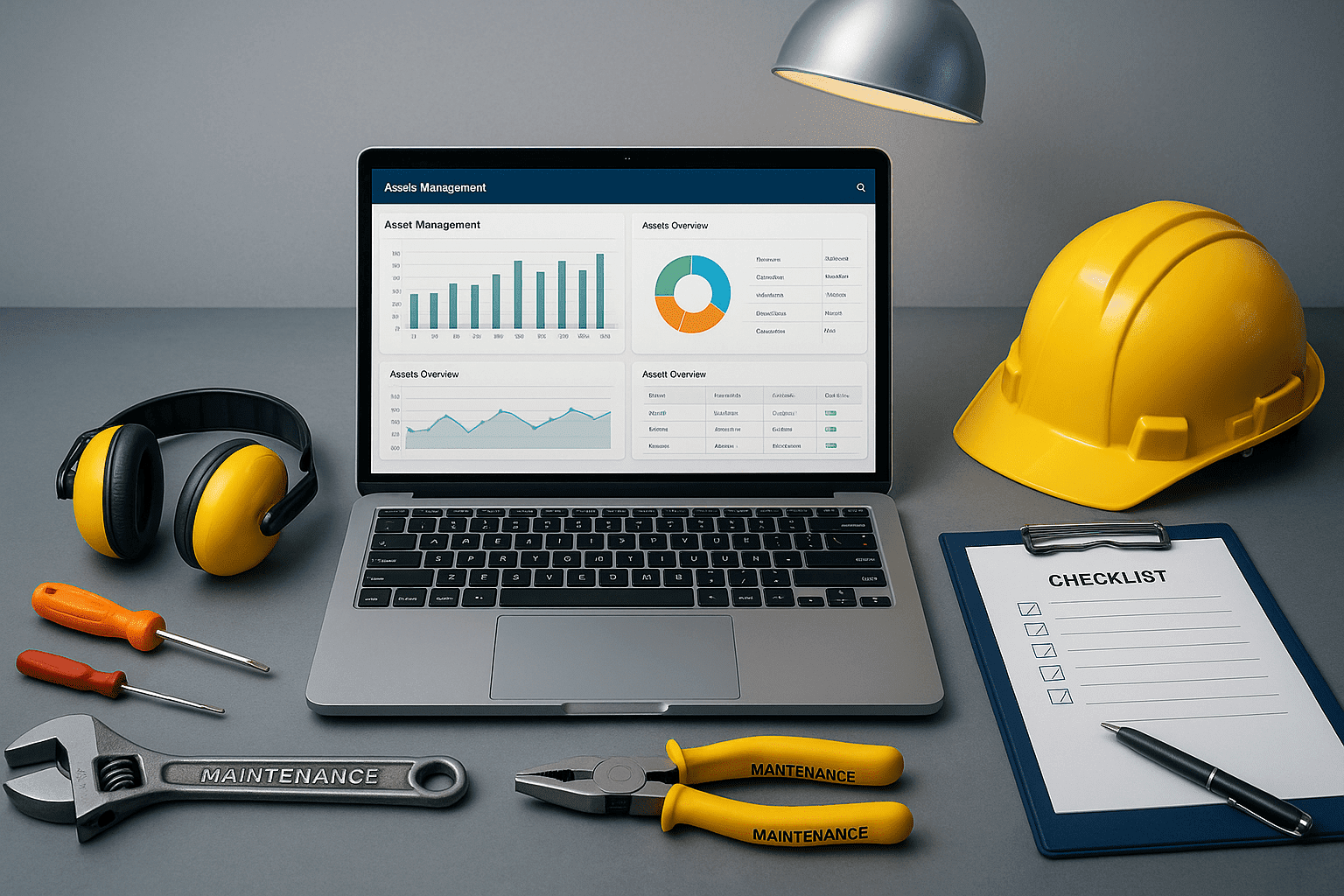Course Features
Price
Study Method
Online | Self-paced
Course Format
Reading Material - PDF, article
Duration
5 hours, 35 minutes
Qualification
No formal qualification
Certificate
At completion
Additional info
Coming soon
- Share
Overview
The ocean covers more than 70% of the Earth's surface, playing a crucial role in climate regulation, biodiversity, and human livelihoods. The Marine Biology Level 5 Advanced Diploma provides a comprehensive understanding of marine ecosystems, species diversity, and environmental challenges, with a focus on scientific research, conservation, and sustainable management of marine resources.
The course begins with an Introduction to Marine Biology, exploring its history, marine ecosystems, and fundamental concepts. Learners will understand how physical, chemical, and biological processes shape marine environments and influence marine life.
In the Marine Life Diversity module, students study the extraordinary variety of life forms in the ocean, including microorganisms, marine plants, algae, invertebrates, and vertebrates. This section highlights the ecological roles and adaptations of different species.
The Oceanography module delves into the physical, chemical, and geological characteristics of the ocean, examining currents, waves, tides, and seabed structures that shape marine habitats.
Marine Ecology focuses on food webs, coral reef systems, coastal habitats, and estuarine dynamics, allowing students to analyze interactions between marine species and their environments.
The course also covers Marine Conservation, addressing key threats to marine biodiversity such as climate change, overfishing, habitat destruction, and pollution. Learners will study marine protected areas, sustainable fisheries, and international conservation strategies.
In the Research Methods in Marine Biology module, students gain practical insights into fieldwork techniques, laboratory analysis, and modern technologies like remote sensing, satellite tracking, and genetic analysis.
The Marine Biotechnology module introduces learners to the use of marine organisms in medicine, aquaculture innovations, and environmental biotechnology, showing how marine biology contributes to scientific advancements and human sustainability.
A critical topic, Climate Change and the Oceans, explores ocean acidification, rising sea levels, and marine ecosystem shifts, alongside mitigation and adaptation strategies for protecting marine life.
The final module, Human Interaction with the Oceans, examines marine resource management, the impact of pollution, and global governance frameworks for ocean sustainability.
This course provides practical and theoretical expertise, preparing students for marine research, conservation efforts, and policy development, ensuring they can contribute to the preservation and sustainable management of marine environments.
Who is this course for?
The ocean covers more than 70% of the Earth's surface, playing a crucial role in climate regulation, biodiversity, and human livelihoods. The Marine Biology Level 5 Advanced Diploma provides a comprehensive understanding of marine ecosystems, species diversity, and environmental challenges, with a focus on scientific research, conservation, and sustainable management of marine resources.
The course begins with an Introduction to Marine Biology, exploring its history, marine ecosystems, and fundamental concepts. Learners will understand how physical, chemical, and biological processes shape marine environments and influence marine life.
In the Marine Life Diversity module, students study the extraordinary variety of life forms in the ocean, including microorganisms, marine plants, algae, invertebrates, and vertebrates. This section highlights the ecological roles and adaptations of different species.
The Oceanography module delves into the physical, chemical, and geological characteristics of the ocean, examining currents, waves, tides, and seabed structures that shape marine habitats.
Marine Ecology focuses on food webs, coral reef systems, coastal habitats, and estuarine dynamics, allowing students to analyze interactions between marine species and their environments.
The course also covers Marine Conservation, addressing key threats to marine biodiversity such as climate change, overfishing, habitat destruction, and pollution. Learners will study marine protected areas, sustainable fisheries, and international conservation strategies.
In the Research Methods in Marine Biology module, students gain practical insights into fieldwork techniques, laboratory analysis, and modern technologies like remote sensing, satellite tracking, and genetic analysis.
The Marine Biotechnology module introduces learners to the use of marine organisms in medicine, aquaculture innovations, and environmental biotechnology, showing how marine biology contributes to scientific advancements and human sustainability.
A critical topic, Climate Change and the Oceans, explores ocean acidification, rising sea levels, and marine ecosystem shifts, alongside mitigation and adaptation strategies for protecting marine life.
The final module, Human Interaction with the Oceans, examines marine resource management, the impact of pollution, and global governance frameworks for ocean sustainability.
This course provides practical and theoretical expertise, preparing students for marine research, conservation efforts, and policy development, ensuring they can contribute to the preservation and sustainable management of marine environments.
Requirements
The ocean covers more than 70% of the Earth's surface, playing a crucial role in climate regulation, biodiversity, and human livelihoods. The Marine Biology Level 5 Advanced Diploma provides a comprehensive understanding of marine ecosystems, species diversity, and environmental challenges, with a focus on scientific research, conservation, and sustainable management of marine resources.
The course begins with an Introduction to Marine Biology, exploring its history, marine ecosystems, and fundamental concepts. Learners will understand how physical, chemical, and biological processes shape marine environments and influence marine life.
In the Marine Life Diversity module, students study the extraordinary variety of life forms in the ocean, including microorganisms, marine plants, algae, invertebrates, and vertebrates. This section highlights the ecological roles and adaptations of different species.
The Oceanography module delves into the physical, chemical, and geological characteristics of the ocean, examining currents, waves, tides, and seabed structures that shape marine habitats.
Marine Ecology focuses on food webs, coral reef systems, coastal habitats, and estuarine dynamics, allowing students to analyze interactions between marine species and their environments.
The course also covers Marine Conservation, addressing key threats to marine biodiversity such as climate change, overfishing, habitat destruction, and pollution. Learners will study marine protected areas, sustainable fisheries, and international conservation strategies.
In the Research Methods in Marine Biology module, students gain practical insights into fieldwork techniques, laboratory analysis, and modern technologies like remote sensing, satellite tracking, and genetic analysis.
The Marine Biotechnology module introduces learners to the use of marine organisms in medicine, aquaculture innovations, and environmental biotechnology, showing how marine biology contributes to scientific advancements and human sustainability.
A critical topic, Climate Change and the Oceans, explores ocean acidification, rising sea levels, and marine ecosystem shifts, alongside mitigation and adaptation strategies for protecting marine life.
The final module, Human Interaction with the Oceans, examines marine resource management, the impact of pollution, and global governance frameworks for ocean sustainability.
This course provides practical and theoretical expertise, preparing students for marine research, conservation efforts, and policy development, ensuring they can contribute to the preservation and sustainable management of marine environments.
Career path
The ocean covers more than 70% of the Earth's surface, playing a crucial role in climate regulation, biodiversity, and human livelihoods. The Marine Biology Level 5 Advanced Diploma provides a comprehensive understanding of marine ecosystems, species diversity, and environmental challenges, with a focus on scientific research, conservation, and sustainable management of marine resources.
The course begins with an Introduction to Marine Biology, exploring its history, marine ecosystems, and fundamental concepts. Learners will understand how physical, chemical, and biological processes shape marine environments and influence marine life.
In the Marine Life Diversity module, students study the extraordinary variety of life forms in the ocean, including microorganisms, marine plants, algae, invertebrates, and vertebrates. This section highlights the ecological roles and adaptations of different species.
The Oceanography module delves into the physical, chemical, and geological characteristics of the ocean, examining currents, waves, tides, and seabed structures that shape marine habitats.
Marine Ecology focuses on food webs, coral reef systems, coastal habitats, and estuarine dynamics, allowing students to analyze interactions between marine species and their environments.
The course also covers Marine Conservation, addressing key threats to marine biodiversity such as climate change, overfishing, habitat destruction, and pollution. Learners will study marine protected areas, sustainable fisheries, and international conservation strategies.
In the Research Methods in Marine Biology module, students gain practical insights into fieldwork techniques, laboratory analysis, and modern technologies like remote sensing, satellite tracking, and genetic analysis.
The Marine Biotechnology module introduces learners to the use of marine organisms in medicine, aquaculture innovations, and environmental biotechnology, showing how marine biology contributes to scientific advancements and human sustainability.
A critical topic, Climate Change and the Oceans, explores ocean acidification, rising sea levels, and marine ecosystem shifts, alongside mitigation and adaptation strategies for protecting marine life.
The final module, Human Interaction with the Oceans, examines marine resource management, the impact of pollution, and global governance frameworks for ocean sustainability.
This course provides practical and theoretical expertise, preparing students for marine research, conservation efforts, and policy development, ensuring they can contribute to the preservation and sustainable management of marine environments.
-
- Overview of Marine Biology 00:10:00
- History of Marine Biology 00:10:00
- Marine Ecosystems 00:10:00
-
- Marine Microorganisms 00:10:00
- Marine Plants and Algae 00:10:00
- Marine Invertebrates 00:10:00
- Marine Vertebrates 00:10:00
- Physical Oceanography 00:10:00
- Chemical Oceanography 00:10:00
- Geological Oceanography 00:10:00
- Threats to Marine Biodiversity 00:10:00
- Marine Protected Areas 00:10:00
- Conservation Strategies 00:10:00
- Marine Natural Products 00:10:00
- Aquaculture and Fisheries 00:10:00
- Environmental Biotechnology 00:10:00
- Marine Resources and Human Welfare 00:10:00
- Marine Pollution 00:10:00
- Marine Policy and Governance 00:10:00
- Premium Certificate 00:15:00

No Reviews found for this course.
Is this certificate recognized?
Yes, our premium certificate and transcript are widely recognized and accepted by embassies worldwide, particularly by the UK embassy. This adds credibility to your qualification and enhances its value for professional and academic purposes.
I am a beginner. Is this course suitable for me?
Yes, this course is designed for learners of all levels, including beginners. The content is structured to provide step-by-step guidance, ensuring that even those with no prior experience can follow along and gain valuable knowledge.
I am a professional. Is this course suitable for me?
Yes, professionals will also benefit from this course. It covers advanced concepts, practical applications, and industry insights that can help enhance existing skills and knowledge. Whether you are looking to refine your expertise or expand your qualifications, this course provides valuable learning.
Does this course have an expiry date?
No, you have lifetime access to the course. Once enrolled, you can revisit the materials at any time as long as the course remains available. Additionally, we regularly update our content to ensure it stays relevant and up to date.
How do I claim my free certificate?
I trust you’re in good health. Your free certificate can be located in the Achievement section. The option to purchase a CPD certificate is available but entirely optional, and you may choose to skip it. Please be aware that it’s crucial to click the “Complete” button to ensure the certificate is generated, as this process is entirely automated.
Does this course have assessments and assignments?
Yes, the course includes both assessments and assignments. Your final marks will be determined by a combination of 20% from assignments and 80% from assessments. These evaluations are designed to test your understanding and ensure you have grasped the key concepts effectively.
Is this course accredited?
We are a recognized course provider with CPD, UKRLP, and AOHT membership. The logos of these accreditation bodies will be featured on your premium certificate and transcript, ensuring credibility and professional recognition.
Will I receive a certificate upon completion?
Yes, you will receive a free digital certificate automatically once you complete the course. If you would like a premium CPD-accredited certificate, either in digital or physical format, you can upgrade for a small fee.
Course Features
Price
Study Method
Online | Self-paced
Course Format
Reading Material - PDF, article
Duration
5 hours, 35 minutes
Qualification
No formal qualification
Certificate
At completion
Additional info
Coming soon
- Share
Microneedling Level 8 Advanced Diploma
Course Line247د.ك206.17Original price was: د.ك206.17.د.ك6.31Current price is: د.ك6.31.Facilities Maintenance and Asset Management Level 3 Advanced Diploma
Course Line240د.ك206.17Original price was: د.ك206.17.د.ك6.31Current price is: د.ك6.31.Reiki Mastery: Level I, II & III (Master Teacher) Certification
Kazi Shofi Uddin Bablu237د.ك206.17Original price was: د.ك206.17.د.ك6.31Current price is: د.ك6.31.





